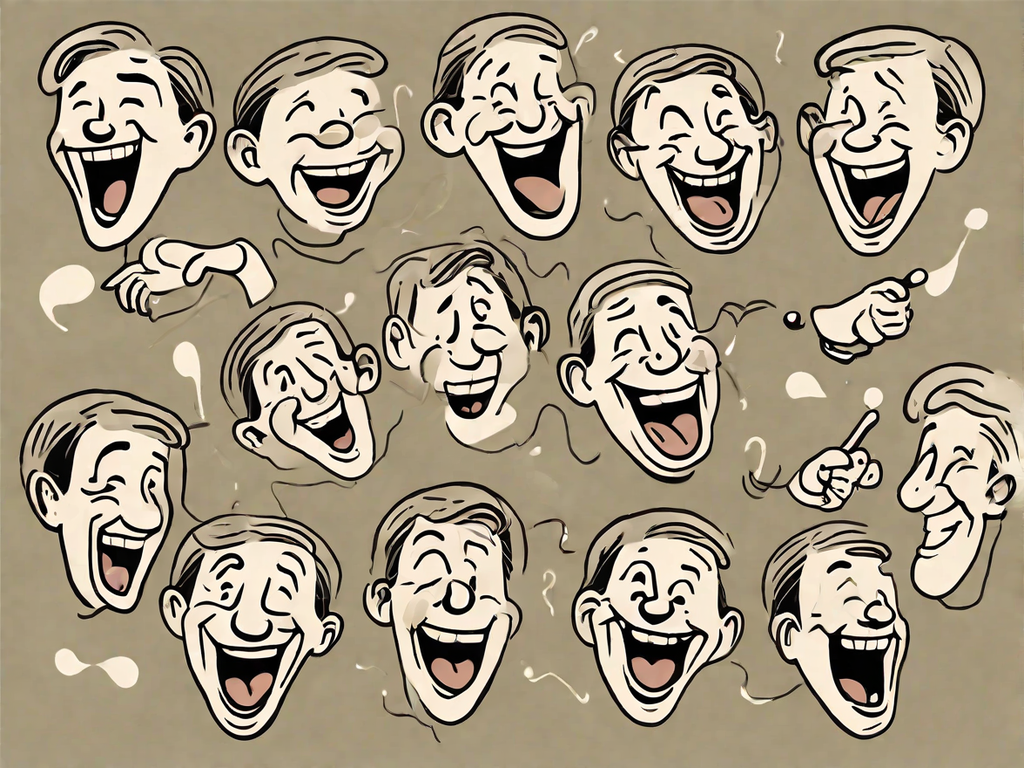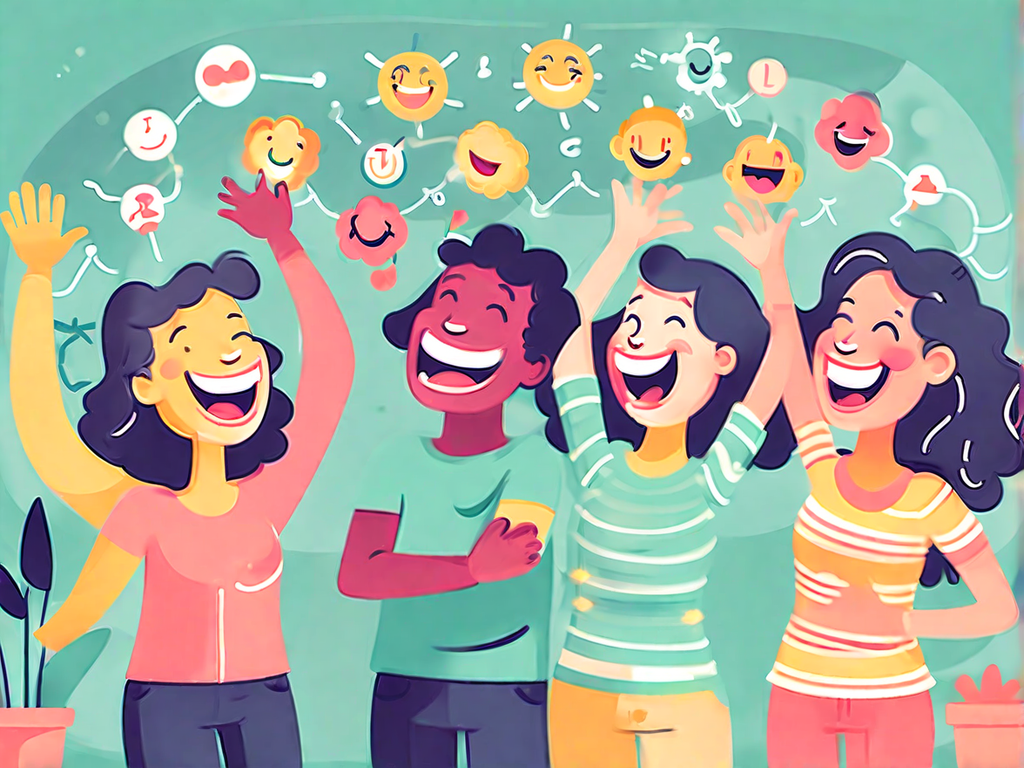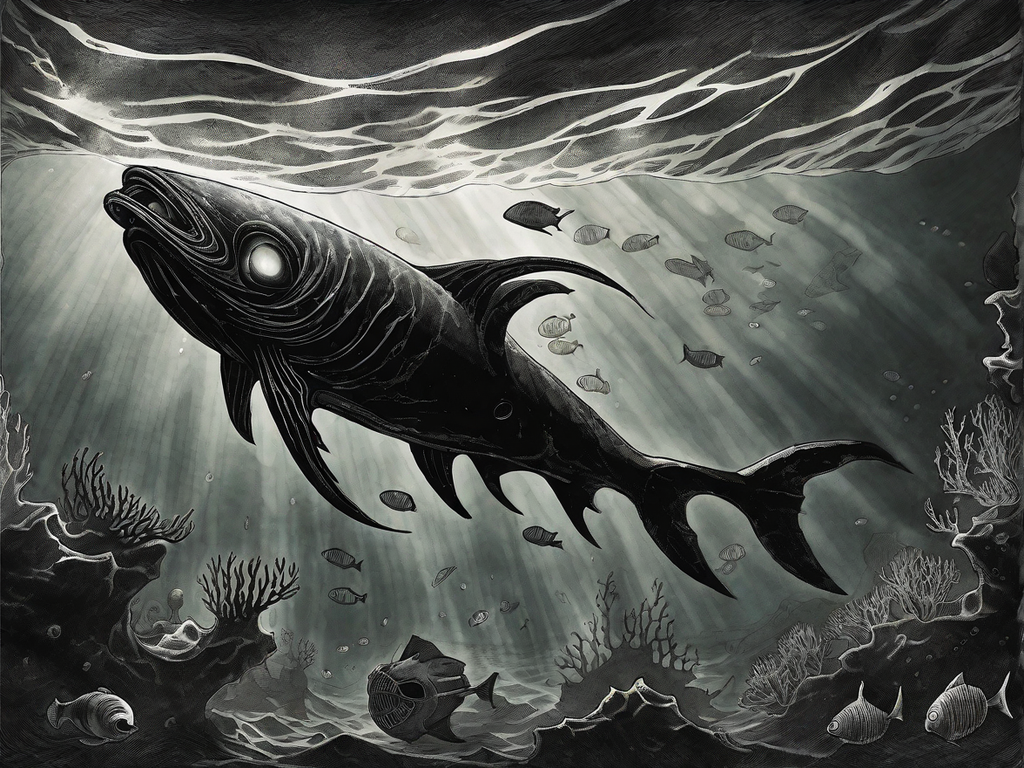Laughter is a universal language that transcends culture and time. It’s a unique human expression that brings joy, lightens the soul, and connects people. Have you ever pondered the inner workings of your brain during moments of laughter? In this article, we’ll explore the fascinating science of laughter, diving deep into the neurological and psychological processes that make humor such a powerful force in our lives. Laughter is not just a random reaction to funny stimuli; it’s deeply ingrained in our biology. When you find something amusing, your brain releases a cocktail of feel-good chemicals, including endorphins, dopamine, and serotonin.

These neurochemicals create a sense of well-being and reduce stress and anxiety. In other words, laughter is your brain’s way of rewarding you for experiencing something pleasurable. Several brain regions play crucial roles in processing humor and generating laughter. The superior frontal gyrus, situated in the frontal lobe, is responsible for deciphering the meaning behind jokes and humor.
The amygdala, an almond-shaped structure deep in the brain, processes the emotional context of a joke, helping you understand whether it’s safe to laugh. The ventromedial prefrontal cortex is responsible for the cognitive interpretation of humor, enabling individuals to recognize and savor the wit and cleverness inherent in a joke.
Laughter isn’t just about feeling good; it’s also a potent tool for social bonding. When people laugh together, their brains release oxytocin, often referred to as the “love hormone.” This hormone fosters trust, empathy, and enhances interpersonal bonds. Think about the last time you shared a hearty laugh with friends or family – it likely strengthened your emotional bonds.
One of the most remarkable aspects of laughter is its ability to reduce stress. When you laugh, your brain releases endorphins, natural painkillers, which not only boost your mood but also alleviate physical discomfort. Stress hormones, such as cortisol, are reduced, promoting a sense of relaxation.
This stress-reduction effect of laughter is why humor is often recommended as a coping mechanism for dealing with life’s challenges. Laughter is more than just a mood enhancer; it’s a catalyst for creativity. Research has shown that people who engage in humor and laughter tend to be more creative problem solvers. When you laugh, your brain’s cognitive flexibility is heightened, enabling you to think “outside the box.” This is why some of the most innovative thinkers in history, from Albert Einstein to Steve Jobs, had a well-known sense of humor.

Laughter is not unique to humans; it’s deeply rooted in our evolutionary history. In fact, other primates, such as chimpanzees and bonobos, also exhibit laughter-like behaviors. These behaviors serve similar social functions in promoting group cohesion and reducing tension. This suggests that laughter has been a part of our evolutionary heritage for millions of years. Laughter is often touted as the best medicine, and there’s scientific evidence to support this claim.
Studies have shown that laughter can improve pain tolerance, boost the immune system, and even increase the body’s production of natural killer cells, which help combat cancer. Medical practitioners now incorporate laughter therapy into patient care, recognizing its potential to improve physical and mental well-being.
The science of laughter is a testament to the incredible complexity of the human brain and the profound impact humor has on our lives. Beyond the joy it brings, laughter serves as a mechanism for social bonding, stress reduction, and even health improvement. Understanding the neurological and psychological processes behind laughter can deepen our appreciation for the power of humor and encourage us to seek more laughter in our lives.
As you contemplate the science of laughter, reflect on the moments that have made you burst into laughter. Share your thoughts and personal experiences in the comments below. Laughter is a universal gift that unites us all, reminding us of our shared humanity.





































